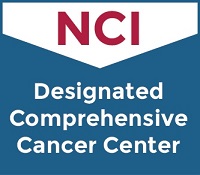Autologous Peripheral Blood Stem Cell Transplant
Step 1: Mobilization
A special medication called Neupogen works to "trick" your bone marrow into over-producing stem cells so that they can be collected from your blood through the use of a central venous catheter. Neupogen is given in very high doses as a daily shot (injection). Most likely, you or your caregiver will give this shot to you at home. Your nurse coordinator will teach you how to do this and make sure that you and your caregiver are comfortable with administering the medication. Mobilization can be chemotherapy followed by Neupogen or Neupogen alone. This will be determined by your doctor.
Step 2: Stem Cell Collection (Apheresis)
Stem cell collection will occur when your stem cells are present in high-enough numbers to be collected. You will need to be at UMGCC at 7:30 a.m. on that day, and your nurse will take a blood sample that is sent to the lab. The lab will check your stem cell count, and the team will make the decision whether to collect your stem cells that day. If you are ready, you will go to the Apheresis room for the day. Apheresis is done as an outpatient, on one or two days, for a 4-6 hour period each day. It is not painful, and you will not "feel" your stem cells being collected. The apheresis nurses will take care of you during the procedure.
After the stem cells are collected, they are frozen and preserved for your use at a later date.
You should bring with you on these days:
- Snacks
- Books, magazines, etc.
- DVDs if desired
Step 3: Re-staging
After apheresis is complete, your nurse coordinator will schedule you for cancer re-staging. Re-staging can involve one or more of the following: bone marrow biopsy, blood work, 24 hour urine evaluation, and PET or CT scans. This step is important because it gives us a "snapshot" of your disease status prior to transplant. It can also tell us if the chemotherapy had an effect on the cancer. You will have an appointment with your transplant doctor to review the results of these tests and sign consent for transplant.
Step 4: Transplant
After your stem cells have been collected, you will be admitted to the transplant (BMT) unit to receive chemotherapy, followed by your stem cells. You will be in the hospital for approximately 14-18 days. There are several different chemotherapy regimens used to prepare the bone marrow for your stem cells. Your doctor will let you know which regimen will be used and why.
Potential side effects from the chemotherapy include: nausea, vomiting, diarrhea, hair loss, decreased appetite, and mucositis (an inflammation of the mouth and GI tract which can lead to bleeding and ulceration). You will have to follow a neutropenic diet to avoid infection. This diet will be followed during transplant and for approximately three months afterward.
Your white blood cell, platelet, and red blood cell counts will be VERY low, which is why you are in the hospital. You will likely need red blood and platelet transfusions to support you while your body is recovering.
It's the Big Day: Day 0!
Day 0 is the day that you will receive your stem cells. They will be infused through your catheter over an hour or so, depending on how many bags of stem cells you will receive. Due to the preservative that is in the frozen stem cells, you may have a metallic taste in your mouth when the infusion begins. This will go away during the infusion and eating mints can often help.
What's Next?
After you receive your stem cells, you may continue to feel some side effects from the chemotherapy. Your WBC, RBC, and platelet counts will drop dramatically. You will be at risk for infection while your WBC count is low. You may get a fever and/or infection during this time. During this timeframe, your stem cells are working to find their way into the bone marrow and produce healthy blood cells. When your WBC count starts to increase, the transplant team will talk with you about discharge from the hospital.
After Discharge from the Hospital
You will come to the Stoler Pavilion outpatient clinic approximately 2-3 times per week for the first week, and then 1-2 times per week for the next 2-3 weeks after discharge. You will then return to your referring oncologist for the rest of your follow-up care. He or she will continue to update our team on your progress.
At the Stoler Pavilion clinic, you will:
- Have CBC and electrolytes checked
- Receive blood and platelet transfusions if needed
- Receive electrolyte replacement if needed
- See your physician for check-ups
- Talk with your team about your medication schedule
After discharge from the hospital, your clinic nurse will be your primary point of contact for any needs, including medication refills, immediate concerns regarding your health, and appointments with your physician.
Signs and Symptoms to Report to the Transplant Team Immediately
- Fever of 100.4 or higher
- Shaking chills
- Nausea, vomiting, diarrhea
- Bleeding
- Symptoms of a cold
- Changes in the level of consciousness
- Pain or cramping
- Problems with the catheter
- Skin rashes
- Changes in vision
- Indigestion
- Pain with urination or difficulty urinating
Please see your BMT education booklet for a more comprehensive list of symptoms and when to report.


